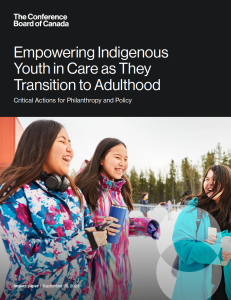Report: Empowering Indigenous Youth in Care
Report: Empowering Indigenous Youth in Care
Young Indigenous people leaving foster care have important skills but are underemployed and have lower earnings than both non-Indigenous youth in care and the general population, according to a report released by the Conference Board of Canada. The report explores the impact of foster care and kin care on the economic, education, and mental well-being of young Indigenous people.
“This research underscores the educational, employment, and mental health disparities faced by our young people in our 30 First Nations, particularly as they transition into adulthood,” said Thelma Morris, Tikinagan Executive Director. “More importantly, it also highlights the urgent need for equitable support, whether they reside on or off-reserve, are in care or not. For too long, our communities have struggled with underfunding and limited access to essential resources, forcing them to be away from their families to travel for mental health services and education. This impacts their identity formation, graduation rates, and future indicators of success. The report’s emphasis on Indigenous-led programs and culture-based approaches aligns with Tikinagan’s commitment to keep our children with us, and within our community. We focus on keeping children and youth connected to their family and culture.”
What is the potential loss to Canada’s GDP by not taking action to improve education, employment, and mental health outcomes for Indigenous youth aging out of care in the near future? What is kin care, and why is it a better solution? What is the role for policy-makers at the federal and provincial/territorial levels? Read the impact paper to get the full analysis.


